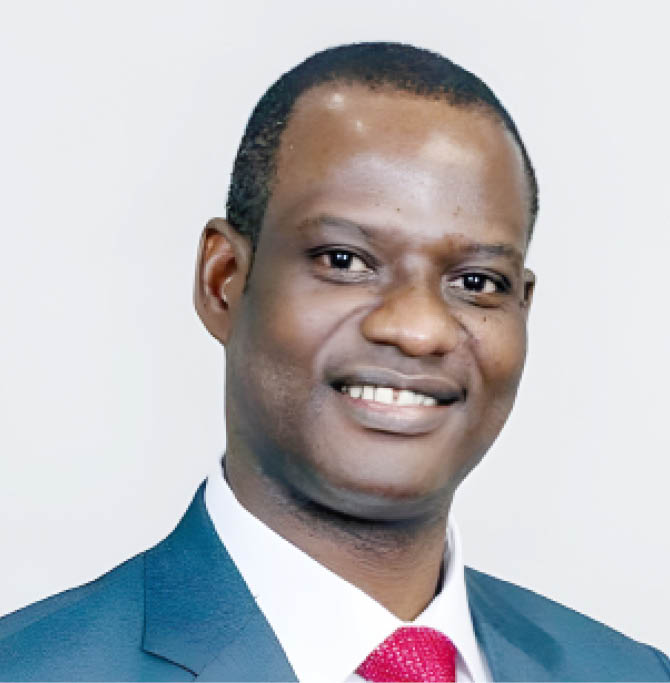Tax reform bills: Nigerians earning minimum wage to be exempted from PAYE – FG
The chairman of the Presidential Fiscal Policy and Tax Reform Committee, Taiwo Oyedele, has said that Nigerians earning minimum wage and slightly above will be exempted from the Pay as You Earn (PAYE) tax once the Tax Reform Bills are signed into law. Oyedele stated this on Monday while answering 10 questions on the bills […]

taiwo oyedele, chairman, presidential committee on fisical policy and tax reforms
The chairman of the Presidential Fiscal Policy and Tax Reform Committee, Taiwo Oyedele, has said that Nigerians earning minimum wage and slightly above will be exempted from the Pay as You Earn (PAYE) tax once the Tax Reform Bills are signed into law.
Oyedele stated this on Monday while answering 10 questions on the bills as part of moves to sensitise Nigerians on the proposed tax law that has continued to draw criticisms in some parts of the country.
Recall that President Bola Tinubu in July this year approved a new national minimum wage of N70,000 for workers, pushing it up from N30,000.
The tax reform bills currently under consideration in the National Assembly have sparked controversy, with northern elites outrightly rejecting them because they may not benefit their region.
- DSS wades in as NLC shuts down Ikeja Electric over poor welfare of staff
- Okpebholo makes first appointment
Under the existing Section 40 of the VAT Act, VAT revenue is distributed as follows: 15% to the Federal Government, 50% to the States and Federal Capital Territory (FCT), and 35% to Local Governments. The allocation to states and local governments incorporates a derivation principle of at least 20%.
Answering the question of whether workers will pay more PAYE tax under the proposed law, Oyedele said: “Individuals earning about N1.7 million or less per month will pay lower PAYE tax while those earning the new minimum wage and slightly more will be fully exempted.”
While noting that the current taxable income bands and rates were introduced in 2011, Oyedele said due to the lack of review, the structure has resulted in “fiscal drag” where many low-income earners have been pushed to the top bracket over time due to high inflation.
On the exemption for minimum wage earners and reduction of tax for low-income earners, Oyedele said: “These thresholds will result in about 98% of workers in the public and private sector paying lower taxes while the top 2% will pay slightly more in a progressive manner up to 25% for high net worth individuals.”
Oyedele further revealed that the lowest-income earners accounting for about one-third of all workers will be fully exempted from tax while low and middle-income earners will pay less.
“This is consistent with the policy philosophy of not taxing poverty.
“Also, self-employed persons and entrepreneurs will enjoy tax exemptions available to individuals in formal employment,” he said.
“The VAT reform includes a zero (0%) rate for food, education, health, and the exemption for rent and public transportation. These items constitute an average of 82% of household consumption and nearly 100% for low-income households which will ameliorate the rising cost of living for the masses,” he added.
Taxing remote workers’ income
Oyedele said there are also proposed changes to the income tax laws to facilitate remote work opportunities for Nigerians in Nigeria within the global business process outsourcing.
According to him, this would empower Nigerian youths to play a key role in the digital economy space.
New tax bills to eliminate all states consumption taxes, except VAT
Oyedele also stated that the proposed tax reform bills will eliminate all subnational consumption levies, except for Value Added Tax (VAT).
Addressing the controversy surrounding the derivation model for VAT allocation to states, Oyedele assured that no state would be left at a disadvantage.
He explained that the law provides for a 5% allocation dedicated to equalisation transfers to compensate states that might collect less under the derivation model.
“Imposition of parallel consumption taxes in some states along with VAT which increases the tax burden on the people and contributes to multiple taxation. The reform seeks the discontinuation of all consumption taxes other than VAT.
“The controversy has arisen from the perception that the proposed formula would lead to lower revenue for some states. However, the 5% to be ceded by the FG can be set aside for equalisation transfers to cater for any shortfall to a state under the new model.
“This ensures that no state is worse off in the short term while significantly enhancing economic activities and revenue for all states in the medium to long term,” Oyedele said.
No Revenue Agency will be Scraped or Merged
Oyedele also addressed questions regarding other revenue agencies, including the Nigerian Upstream Petroleum Regulatory Commission (NUPRC) and the Nigerian Customs Service (NCS), and whether they might be scrapped or merged under the tax harmonization plan.
The tax expert clarified that this is not the case. Instead, these agencies will continue to focus on their regulatory mandates, with their allocations provided through the budgetary process.
He further noted that these agencies will no longer retain the responsibility of collecting regulatory fees within their respective jurisdictions.
